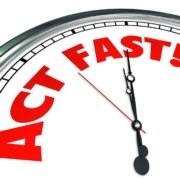Understanding Thyroid Disease
The thyroid is a very important organ that – frankly – doesn’t get the attention it deserves, until something goes wrong, like getting diagnosed with thyroid disease. Here at NOAH, we want to turn our focus here for Thyroid Awareness Month.
What is the thyroid?
The thyroid is a small, butterfly-shaped organ in the front of your neck that wraps around your trachea (throat or windpipe). Its job is to create and release important substances to help your body function. In the case of the thyroid, its job is to release hormones that control your metabolism.
Why is the thyroid important?
The thyroid has an important job to do – regulating your metabolism. Your metabolism is how your body turns food into energy. When your thyroid is working correctly, you don’t think about it. It adjusts the amount of hormones it releases to meet what your body needs. Then, the thyroid creates more hormones and continues the process. Pretty nice.
But like with many things, we don’t notice or appreciate it when it works correctly. However, when the thyroid has trouble doing its job, the results can be serious.
What happens when the thyroid doesn’t work correctly?
Thyroid disease can be caused by two different types of problems with the thyroid: making too much hormones or making too little.
- Hyperthyroidism is when your thyroid makes too much of the hormones needed to regulate your metabolism. Then, your body uses the hormones too quickly. It can cause people to feel anxious, lose weight too quickly, have trouble sleeping, and make your heart beat faster.
- Hypothyroidism is when your thyroid doesn’t make enough of the hormones needed to regulate your metabolism. With too little hormone, you can also feel overly tired, gain weight, experience forgetfulness, and feel discomfort with cold temperatures.
Both are serious medical conditions and should be diagnosed and treated by your medical provider.
How do you get thyroid disease?
The risks for thyroid disease are broad and it effects around 20 million Americans. It can be genetic and passed down from family members, but other risk factors include having another medical condition. It’s worth noting that while anyone can have thyroid disease, women are five times more likely to be diagnosed than men, and people age 60 and older are also at a higher risk.
Are there diagnoses and treatments?
Because the signs and symptoms for thyroid disease can look like other illnesses, it is important to talk with your doctor if you have any new symptoms. Your medical provider will do physical exams and most likely blood tests to confirm a thyroid condition.
Treatments will depend on what type of thyroid disease you have and how serious it is. Most patients are prescribed medications.
Many people live healthy, normal lives with thyroid disease, but this thyroid awareness month it is important to learn all about it for yourself and for others. Working with your medical provider and integrated care team at NOAH will make it easier to navigate this or any other health concern or diagnosis.










